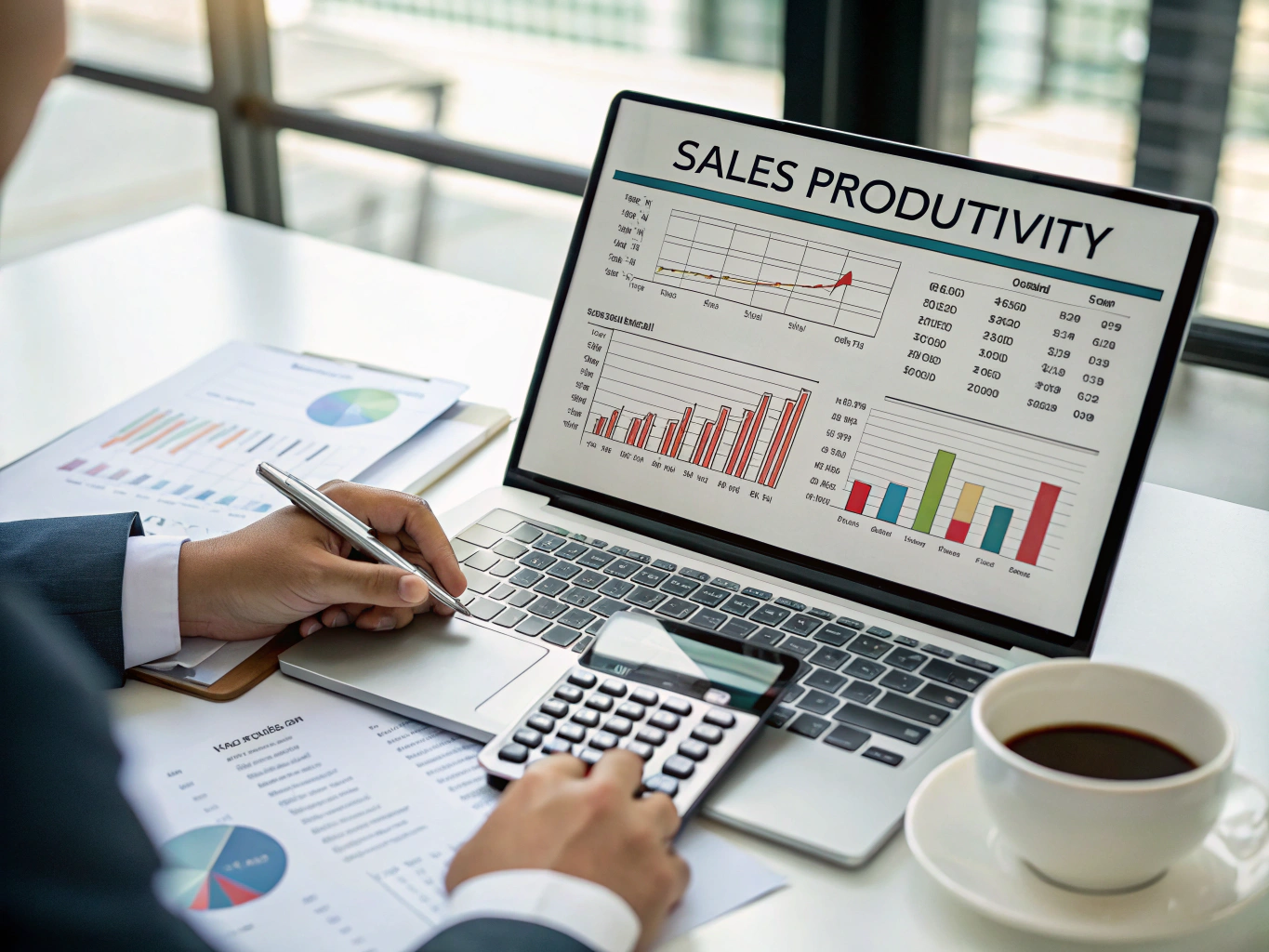How to Measure Sales Productivity for Better Results in 2025
Understanding how to measure sales productivity is essential for achieving exceptional results in the fast-paced world of sales. As we step into 2025, you’ll want to be armed with the right strategies to track your team's effectiveness and maximize their output. So, let’s break down some actionable insights and techniques that you can implement to enhance your sales team’s performance.
Why Measure Sales Productivity?
Before we jump into metrics, let’s talk about why measuring sales productivity is vital. Knowing your team's output helps you to refine processes, identify low performers, and ultimately increase revenue. Additionally, it allows you to pinpoint areas where training or resources may be needed.
Key Sales Productivity Metrics to Track
When it comes to measuring sales productivity, there are several key metrics you should focus on:
-
Sales Revenue: It’s the most straightforward measure. Track how much revenue each salesperson is generating within a given timeframe.
-
Conversion Rate: This metric tells you how many of your leads are converting into sales.
-
Average Deal Size: This helps you understand the financial impact of your sales team’s efforts.
-
Sales Cycle Length: How long does it take for a lead to become a customer? Shortening this cycle can significantly impact your sales productivity.
-
Customer Acquisition Cost (CAC): Knowing how much it costs to acquire a customer is crucial for optimizing your sales process.
-
Lead Response Time: The faster your team responds to leads, the better your chances of closing a deal.
By regularly assessing these sales productivity metrics, you’ll be well-equipped to measure performance effectively.

How to Improve Sales Results in 2025
Now that you know how to measure sales performance, let’s explore sales productivity tips that can drive better outcomes in 2025.
-
Set Clear Goals: Without clear objectives, your team can drift. Set SMART goals (Specific, Measurable, Achievable, Relevant, Time-bound) to clarify what success looks like.
-
Use Technology: Utilize sales tools and CRM systems to automate mundane tasks. This increases your team’s efficiency and allows them to focus on closing deals rather than dealing with admin.
-
Continuous Training: Regularly train your sales force to keep skills sharp. Sales techniques evolve, and so should your team's knowledge.
-
Incorporate Feedback: Regularly consult your team for their input on the sales process. They may offer valuable insight into what’s working and what isn’t.
-
Monitor Activity Levels: Sales KPIs tracking can help you keep tabs on activities such as calls made, emails sent, and meetings held. Higher activity generally leads to higher sales.
Measuring Efficiency in Sales
Sales efficiency measurement is another critical aspect. Evaluate how effectively your team turns leads into sales. Here’s a simple formula to help you get started:
[ \text{Sales Efficiency} = \frac{\text{Total Revenue}}{\text{Total Sales Expenses}} ]This metric helps you identify how effectively your expenses are translating into sales. The goal is to increase this ratio over time.
Optimize Your Sales Process
To further enhance your sales productivity, look at how you can optimize your sales process.
-
Lead Scoring: Not all leads are equal. Prioritize leads based on their likelihood to convert.
-
Sales Funnels: Create a structured sales funnel that outlines every step a potential customer goes through, from awareness to purchase.
-
Review and Refine: Regularly assess your sales strategies. What worked last year might not work in 2025, so remain adaptable.
Frequently Asked Questions (FAQs)
How often should I measure my sales productivity?
Aim to measure sales productivity on a monthly or quarterly basis to identify trends and areas for improvement.
Should I focus solely on revenue?
While revenue is crucial, consider other metrics such as conversion rates and lead responsiveness to get a holistic view of productivity.
Can technology replace personal sales skills?
No. Technology should complement skills but cannot replace the value of strong interpersonal relationships and communication in sales.
What's the best way to ensure my team stays motivated?
Offer incentives and recognition for achievements. Establishing a strong team culture also impacts motivation.
How does measuring productivity affect my sales team?
When your team knows they are being measured, it can motivate them to increase their performance and strive for continuous improvement.
By focusing on how to measure sales productivity, leveraging cutting-edge tools, and implementing strategic tips, you're setting your team up for unprecedented success in 2025.
For more insights into boosting productivity in your business, check out the AI for Productivity eBook + Checklist: Supercharge Your Efficiency in 2406 and improve your processes today.
Additionally, if you're looking for comprehensive productivity tools, you'll find immeasurable value in the ADHD Productivity Power Pack: Ebooks, Guides, Checklists, Workbook & Tools to Master Focus, Time Management & Organization.
Stay focused, stay productive, and drive your sales to new heights in 2025!

